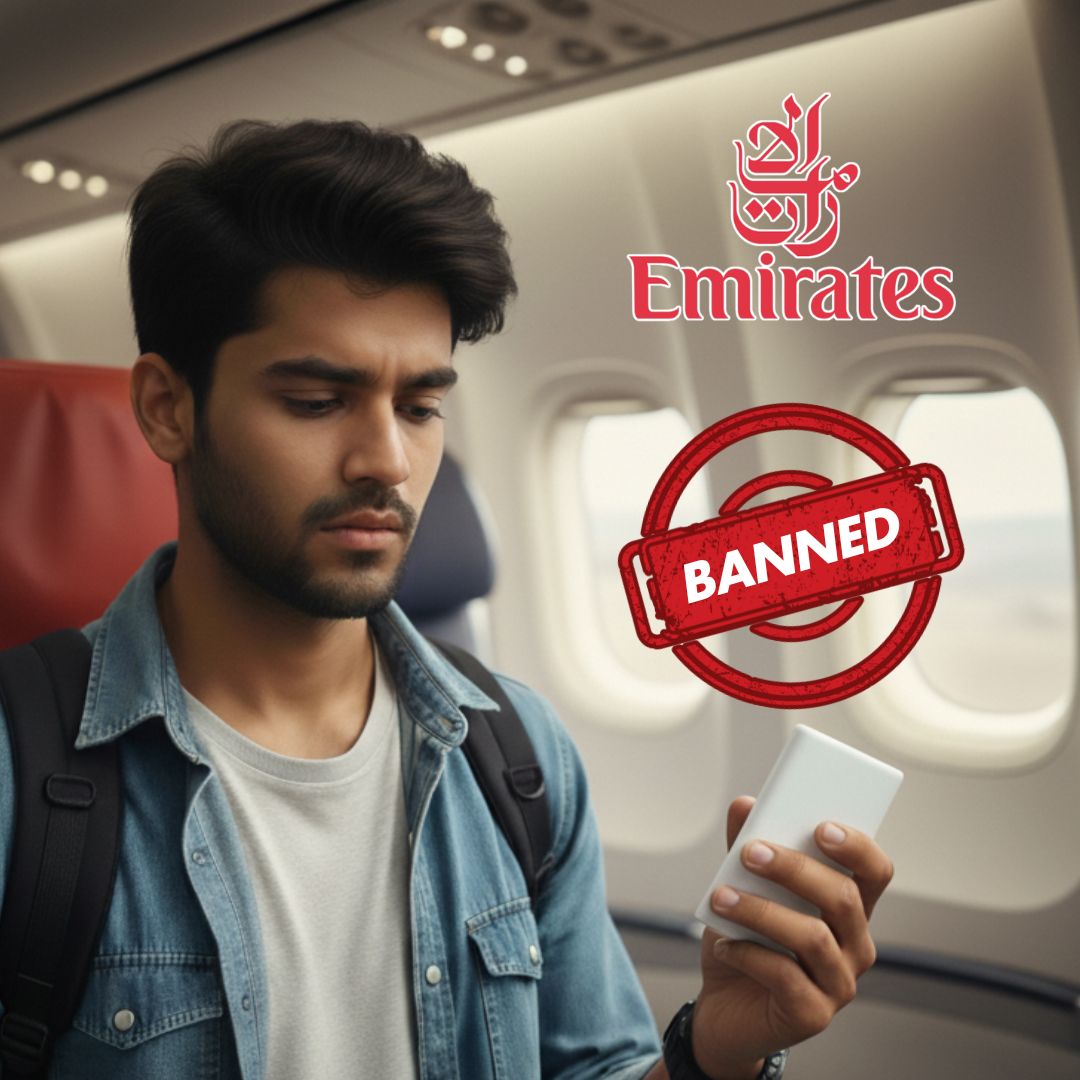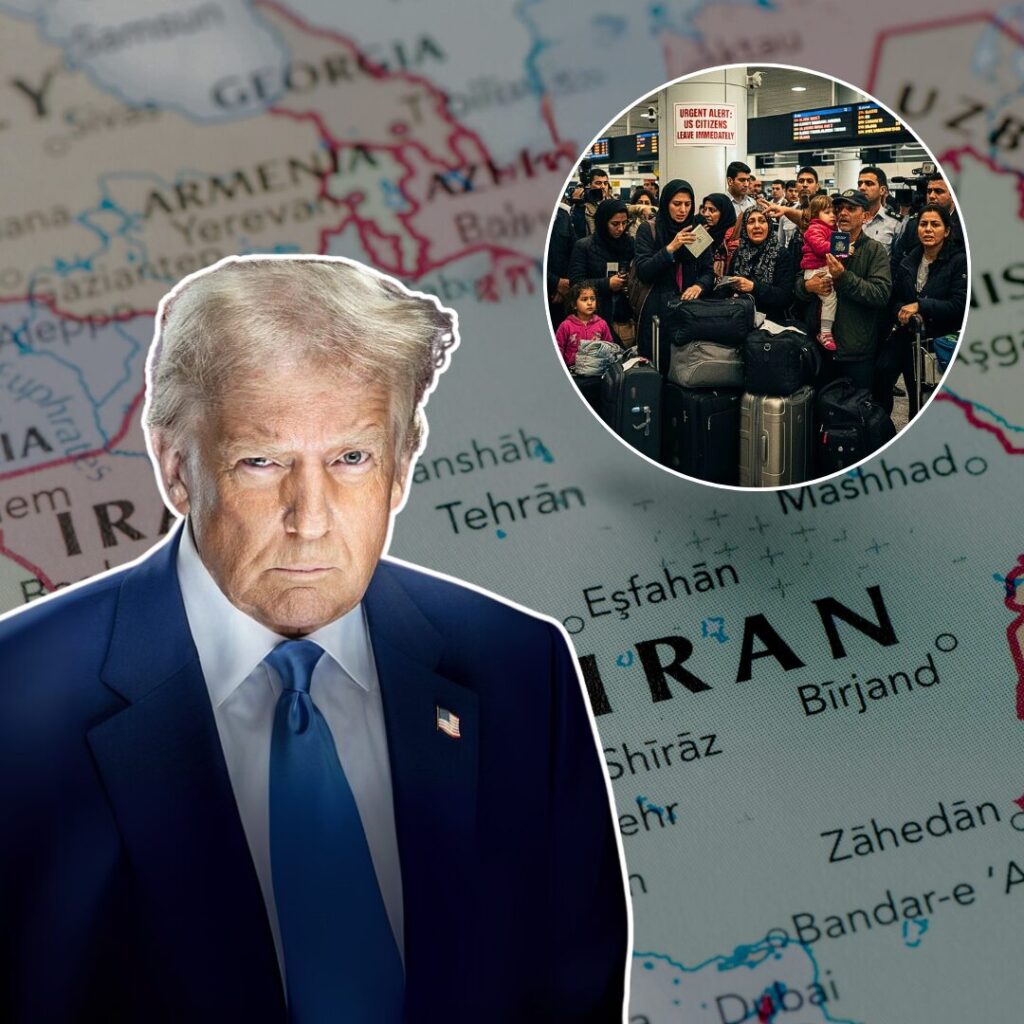Starting 1 October 2025, Emirates has introduced a strict ban on the use and charging of power banks on all its flights. Passengers can carry only one power bank up to 100 watt-hours (Wh) in their cabin baggage, but it must remain switched off throughout the journey and cannot be used to charge devices or be recharged onboard.
Power banks must be stored under the seat or in the seat pocket and are not allowed in overhead bins or checked luggage. The airline cites increasing safety concerns over lithium-ion batteries and aims to minimise fire hazards during flights by enforcing these new rules strictly.
New Safety Protocols for Power Bank Use
Dubai-based Emirates, one of the world’s largest airlines, announced the new power bank regulations after conducting a comprehensive safety review. The airline emphasized, “Safety remains our utmost priority. The increasing use of power banks onboard has led to a rise in lithium battery-related incidents, prompting us to take proactive measures to safeguard passengers and crew.”
Under the new rules, passengers must carry only one power bank with a clear capacity label of 100Wh or less. These devices cannot be used for charging any gadgets or recharged via the aircraft’s in-seat power supply during the flight. Power banks are required to be kept within easy reach, in the seat pocket or under the seat, to allow cabin crew quick access in case of any malfunction or overheating.
Background: Rising Lithium Battery Hazards
The ban follows growing global concerns about lithium-ion and lithium-polymer batteries, which power most portable chargers, including power banks. Batteries can pose severe risks, such as thermal runaway, overheating, and fires if damaged or mishandled.
Aviation authorities worldwide, including the International Air Transport Association (IATA) and various national regulators like the FAA and CAA, have issued strict guidelines on transporting and using such batteries. Emirates’ policy goes beyond existing norms by prohibiting any in-flight use or charging of power banks, reflecting an industry-wide trend to prevent battery-related incidents.
Similar bans have been introduced by airlines such as Singapore Airlines, Cathay Pacific, and Korean Air following a noticeable increase in onboard lithium battery incidents.
Implications for Passengers and Airlines
While the new regulations may inconvenience passengers accustomed to using power banks to charge their devices during flights, Emirates reassures travellers that all its aircraft are equipped with in-seat power outlets. Passengers are strongly advised to fully charge their phones, tablets, and laptops before boarding. The airline’s cabin crew will strictly enforce the ban, and any violation could lead to the confiscation of power banks or other penalties.
Emirates also continues to prohibit power banks in checked baggage, a longstanding rule due to the higher risk posed by inaccessible batteries in cargo holds. These policies aim to create a safer flying environment, reducing the risk of fire emergencies that could threaten passenger safety.
The Logical Indian’s Perspective
Emirates’ decision to prioritise the safety of millions flying on their aircraft over the convenience of charging devices mid-flight exemplifies responsible corporate governance in aviation. With increased dependence on electronic devices, the risks that lithium batteries pose cannot be ignored, and the airline’s proactive stance aligns with a global commitment to safer skies.
Such measures may temporarily inconvenience some travellers, but collective safety demands a responsible approach to technological risks. The Logical Indian supports policies that promote empathy and responsibility, urging passengers to adapt willingly for the greater good.
From 1 October 2025, Emirates is making changes to safety rules regarding power banks onboard, applicable to all customers. https://t.co/jrDudrF5eA pic.twitter.com/ztWXWj1tLU
— Emirates (@emirates) August 8, 2025













